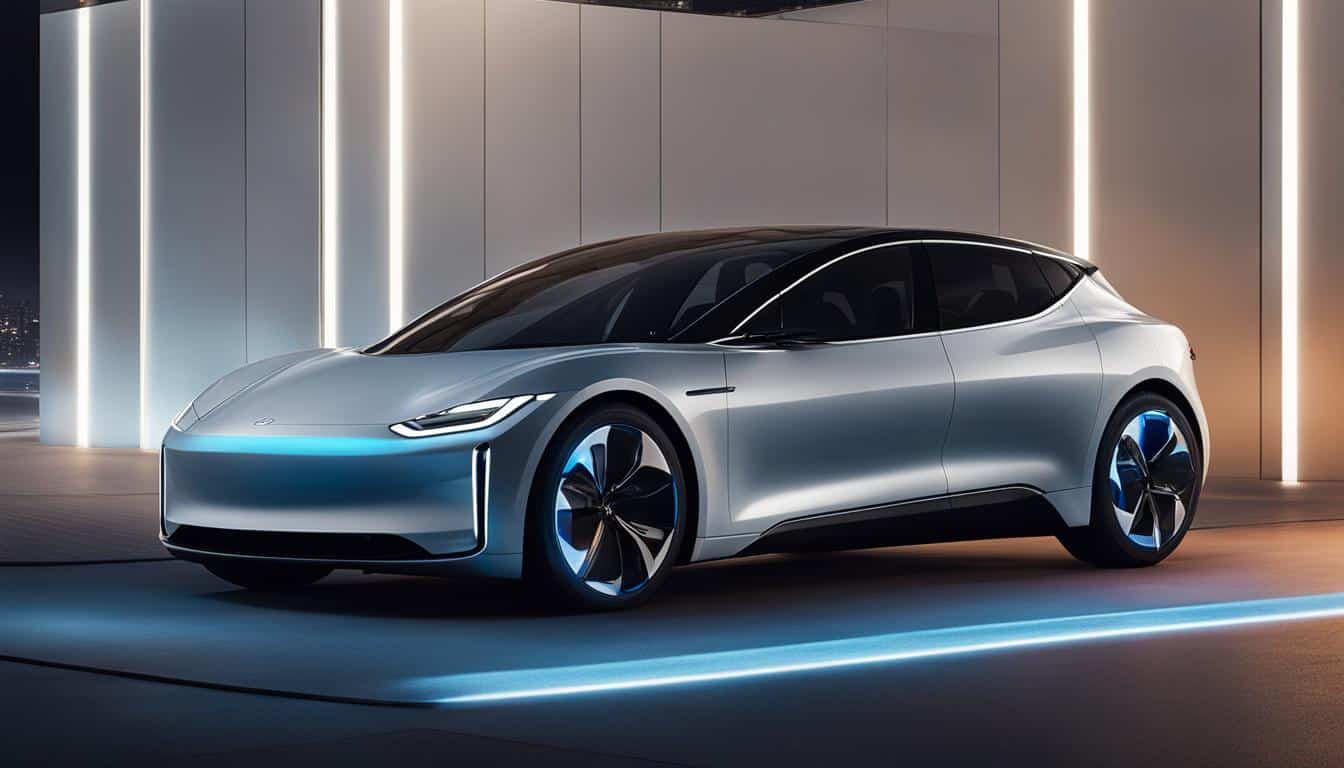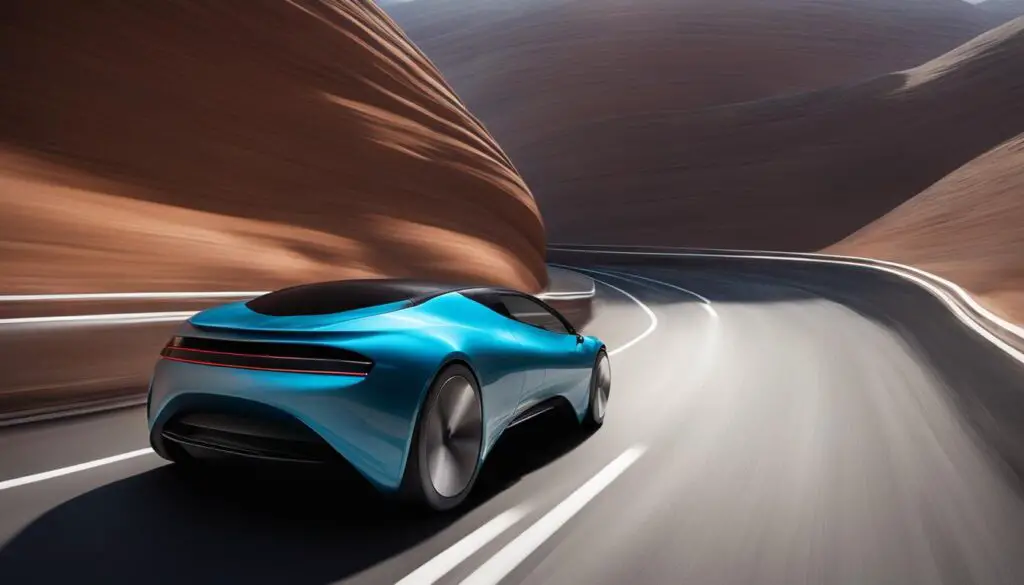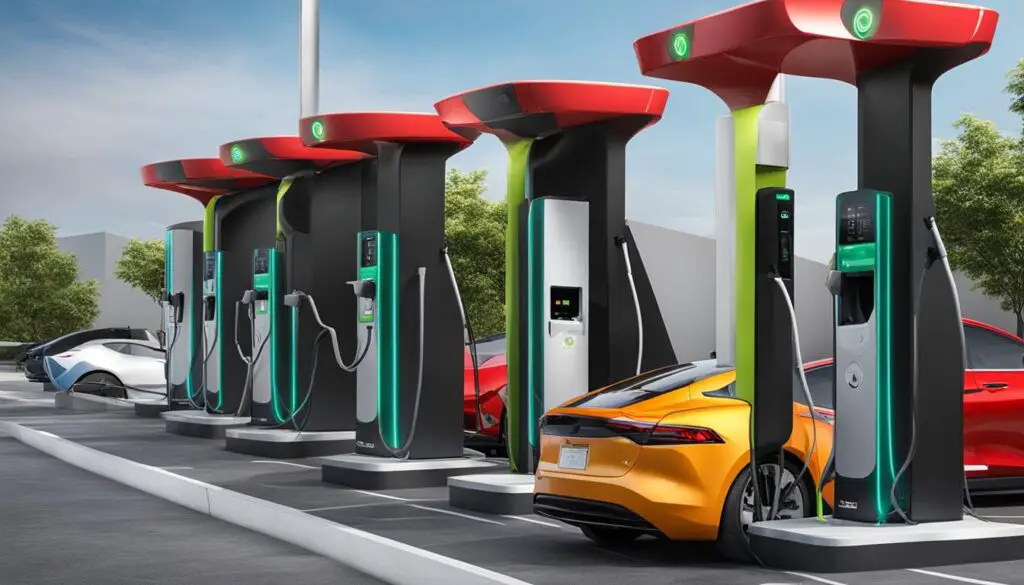
Acceleration and Power: How Electric Vehicles Compare to Gasoline Cars
When it comes to comparing electric vehicles (EVs) to traditional gasoline cars, one of the key factors to consider is their acceleration and power. Many misconceptions exist about EV performance, but factual data shows that EVs are quickly closing the gap and becoming a formidable choice for car buyers. With advancements in technology and increasing affordability, EVs are proving to be a smart and cost-effective option.
One noticeable advantage of electric vehicles is their instant acceleration. Unlike gasoline cars that rely on complex systems to generate power, EVs have a straightforward electric motor that enables them to deliver immediate torque. This translates into swift acceleration, which is both thrilling and practical for everyday use.
Furthermore, EVs offer a range comparable to that of gasoline cars. With innovations in battery technology, EVs are now capable of traveling longer distances without needing frequent recharging. Range anxiety, a concern often associated with EVs, is becoming less relevant as newer models offer greater driving distances.
Another aspect to consider is the availability of charging stations. While the growth of the charging infrastructure is an ongoing process, there are already a significant number of charging stations across the country, making it increasingly convenient for EV owners to fuel up. Additionally, the option of home charging eliminates the need to rely solely on public charging stations.
Lastly, it’s important to acknowledge the environmental benefits of EVs. Compared to gasoline cars, EVs produce zero tailpipe emissions, resulting in cleaner and greener transportation. With increasing concerns about climate change, the transition to electric vehicles plays a crucial role in reducing carbon footprint and creating a sustainable future.
Key Takeaways:
- EVs offer instant acceleration due to their electric motor technology.
- Newer EV models have a range comparable to gasoline cars.
- The availability of charging stations is increasing, making it more convenient for EV owners.
- EVs produce zero tailpipe emissions, contributing to cleaner and greener transportation.
- Advancements in battery technology are addressing range anxiety concerns.
Cost Comparison: EVs vs. Gasoline Cars
When considering the switch to an electric vehicle (EV), one of the primary concerns for many potential buyers is the cost. However, with recent advancements in technology and government incentives, EVs have become more affordable than ever before.
Models like the SEAT Mii electric and Nissan Leaf offer competitive price points, making EVs a viable option for a wider range of consumers. Additionally, various electric vehicle incentives across Europe contribute to reduced purchase prices, further enhancing the affordability of EVs.
But cost isn’t just about the initial purchase price. EV owners also enjoy significant long-term cost savings compared to fuel car drivers. One of the key factors contributing to these savings is the lower operational expenses of EVs. Thanks to cheaper fuel costs and lower maintenance requirements, EV owners save an average of $632 per year.
In terms of fuel costs, electricity is generally cheaper than gasoline, providing substantial savings over time. Additionally, the reduced number of moving parts in an EV translates to lower maintenance and repair costs. With fewer fluids to change and no need for oil changes, EV owners can enjoy considerable savings in this area as well.
While occasional battery replacement may be a consideration for some, the average lifespan of EV batteries is around 10 years. As technology advances and battery costs continue to decrease, the cost of replacing an EV battery is expected to become more affordable in the future.
So, when considering the overall cost, it’s clear that EVs not only offer affordability in terms of upfront pricing but also provide significant long-term cost savings. The tables below summarize the cost comparison between EVs and gasoline cars:
| EVs | Gasoline Cars | |
|---|---|---|
| Fuel Costs | Cheaper due to electricity | Higher due to gasoline prices |
| Maintenance Costs | Lower due to fewer moving parts | Higher due to more complex engine |
| Battery Costs | Occasional replacement (around 10 years) | No battery replacement necessary |
| Long-Term Savings | Average annual savings of $632* | No significant long-term savings |
*Based on average operational expenses savings compared to fuel car drivers.
Performance Comparison: EVs vs. Gasoline Cars
When it comes to performance, electric vehicles (EVs) and gasoline cars have distinct characteristics. EVs offer an exciting advantage with their instant acceleration and impressive torque. The simplicity of electric motors allows EVs to deliver power right from the start, giving drivers a thrilling and responsive experience on the road. While gasoline cars may have higher top speeds, EVs can still reach sufficient speeds for everyday usage.
One common concern among potential EV buyers is range anxiety. However, many EV models today can cover distances comparable to those of gasoline cars. In fact, newer EV models like the Hyundai Kona Electric, Chevrolet Bolt EV, and Kia e-Niro already offer ranges similar to average fuel cars. With these advancements, range anxiety is becoming less of a concern for drivers.
Here’s an overview of the power and range capabilities of some popular EV models:
| EV Model | Acceleration | Top Speed | Range |
|---|---|---|---|
| Nissan Leaf | 7.9 seconds (0-60 mph) | 98 mph | 150 miles |
| Tesla Model 3 | 5.3 seconds (0-60 mph) | 140 mph | 250 miles |
| Audi e-tron | 5.5 seconds (0-60 mph) | 124 mph | 204 miles |
As seen in the table above, EVs offer impressive acceleration and competitive speeds for everyday use. Additionally, the average driving distance per day falls well within the range capabilities of most EVs. This means that range anxiety is not a significant issue in day-to-day driving scenarios.
With the combination of instant acceleration, torque, and improved ranges, EVs are proving to be a compelling option for drivers who want a thrilling and eco-friendly driving experience without compromising performance.

Charging Infrastructure: EVs vs. Gasoline Cars
When considering the transition to electric vehicles (EVs), one common concern that potential buyers have is the availability of charging stations. However, the growth of the charging network has made this concern increasingly irrelevant.
For most people, daily driving distances are relatively short, making home charging a convenient and practical option. By simply plugging in their EVs overnight, owners can wake up to a fully charged vehicle.
Furthermore, the number of public charging stations has been rapidly increasing. In Europe alone, there are now over 190,000 charging stations, offering a robust and widespread network for EV owners.
Governments and businesses are actively working to further expand the charging infrastructure. With the post-COVID-19 rebuilding of economies, there is an opportunity to strengthen and improve the EV charging network even more.
| Benefits of the Growth in Charging Infrastructure | Benefits of Home Charging |
|---|---|
| Convenience for EV owners | Easy and accessible charging |
| Reduced range anxiety | Cost-effective and time-saving |
| Encourages adoption of electrification | Vehicle charged and ready each morning |
With the continuous expansion of EV charging stations and the convenience of home charging, the charging infrastructure for EVs is steadily improving. This growth brings reassurance to potential buyers and supports the widespread adoption of electric vehicles.

Conclusion
The comparison between electric vehicles (EVs) and gasoline cars in terms of acceleration and power reveals that EVs have become competitive in many aspects of performance. As the future of transportation evolves, EVs are becoming more affordable and cost-effective alternatives to traditional gasoline cars, offering instant acceleration and comparable range.
One of the primary concerns for potential EV buyers has been the availability of charging infrastructure. However, this concern is steadily being addressed as the number of charging stations continues to grow rapidly. With over 190,000 charging stations throughout Europe, and a significant increase in home charging options, access to charging stations is improving and alleviating concerns related to range anxiety.
While gasoline cars still hold advantages in terms of range and ease of refueling, the increasing interest in clean technologies and advancements in engine performance suggest a promising future for electric vehicles. As the engine performance debate continues, EVs will further improve in range and refueling speed, making them even more comparable to gasoline cars.
Ultimately, the choice between EVs and gasoline cars comes down to individual preferences and specific needs. However, given the ongoing advancements and the positive trajectory of EV development, it is clear that electric vehicles are poised to play a significant role in the future of transportation, offering a greener and more sustainable solution for our mobility needs.
FAQ
How do electric vehicles (EVs) compare to traditional gasoline cars in terms of acceleration and power?
EVs offer instant acceleration due to their electric motors, which provide full torque from the start. While gasoline cars may have higher top speeds, EVs can still reach sufficient speeds for everyday usage.
Are electric vehicles becoming more affordable?
Yes, EVs have become more affordable in recent years, with models like SEAT Mii electric and Nissan Leaf having competitive price points. Various electric vehicle incentives across Europe also contribute to reduced purchase prices.
Can electric vehicles save money in the long run compared to gasoline cars?
Yes, EV owners save an average of $632 per year on operational expenses compared to fuel car drivers, thanks to cheaper fuel costs and lower maintenance requirements.
What is the range capability of electric vehicles?
Many EV models can cover distances comparable to gasoline cars. Newer EV models like Hyundai Kona Electric, Chevrolet Bolt EV, and Kia e-Niro already offer ranges similar to those of average fuel cars. Additionally, the average driving distance per day falls well within the range capabilities of most EVs.
Is the availability of charging stations a concern for EV owners?
The availability of charging stations has been a concern for potential EV buyers, but this concern is becoming less relevant. Most people drive short distances daily, making home charging a convenient option for EV owners. The number of public charging stations has been rapidly increasing, with over 190,000 charging stations in Europe alone.
